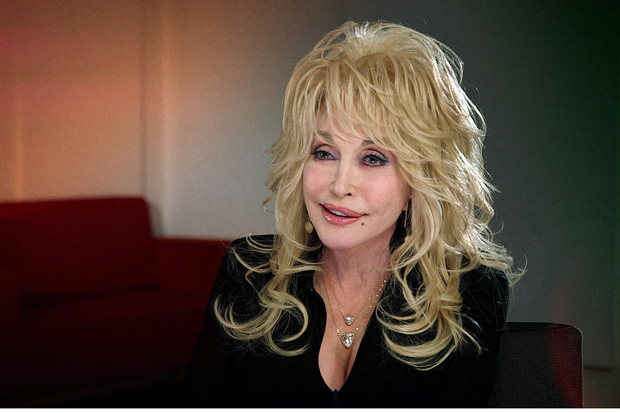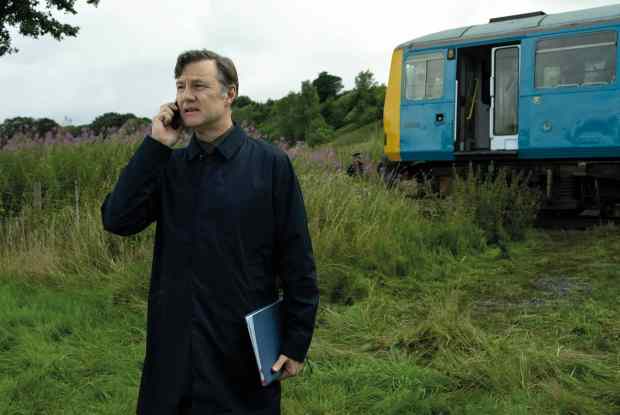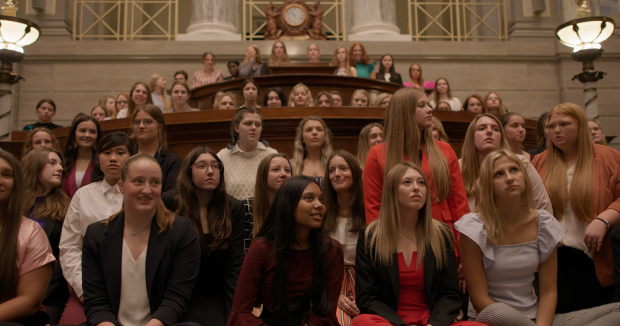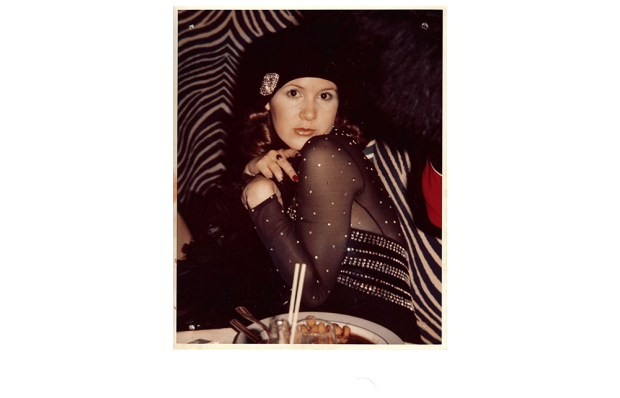Twenty minutes into BBC4’s The Heart of Country (Friday), there was a clip of Chet Atkins, country music’s star producer of the 1960s, being asked to define ‘the Nashville sound’. Atkins reached into his pocket, pulled out some coins and rattled them in his hands. ‘That’s the Nashville sound,’ he said with a slightly rueful smile. ‘Money.’
By this stage, mind you, the revelation of Nashville’s commercialism didn’t come as an enormous surprise. After all, WSM, the radio station that started the whole thing with its live shows from the Grand Ole Opry, was the broadcasting arm of the National Life and Accident Insurance Company. It also took a stern line on any songs whose depictions of southern life didn’t match Nashville’s self-image as place of blameless propriety. In 1952, for example, WSM banned ‘It Wasn’t God Who Made Honky-Tonk Angels’ by Kitty Wells — memorably described by one contributor as the first woman in country music ‘who stood up and said, “You’re a jerk, and here’s why.”’ (Many more would, of course, follow.)
For a while, this commitment to wholesomeness seemed a rare commercial mistake, as the younger audience headed off to rock’n’roll. Nashville, though, soon hit back by replacing fiddles with lush strings, turning singers into crooners and flogging its product to suburban adults. (One exceptionally gruesome clip featured Willie Nelson in the early 1960s crooning away in a nice white cardie.) As Eddy Arnold, one of the biggest stars of the day, put it, ‘I didn’t care if it was real country music. I just wanted to sell records.’
The turning point came when the impeccably hip Bob Dylan recorded Blonde on Blonde in Nashville, and started duetting with Johnny Cash. At a stroke, country turned unexpectedly cool, and the likes of Willie Nelson and Waylon Jennings found themselves playing to the kind of countercultural types straight out of the Nashville city fathers’ nightmares. But if country music was now a fashion accessory for urban folks, what would happen once the fashion changed?
The answer is that in the 1980s Nashville went into freefall. It didn’t recover until Garth Books came along to become the biggest country star of them all, with his combination of rock-star posturing (in a cowboy hat) and old-school values. ‘It’s a gift from God,’ Garth told us, ‘and he didn’t put any restrictions on it. God didn’t say, “You can only sell this many units.”’
The Heart of Country was always going to struggle to cover 90 years in 90 minutes, so you could possibly forgive it the odd forced link and a recurring sense of surfaces being skimmed. Nonetheless, the programme really should have been better, particularly given the quality of its contributors — among them Willie Nelson, Kris Kristofferson and, needless to say, Dolly Parton reminiscing about the Smoky Mountains.
For one thing, its reverent tone meant that it missed out on the sheer fun of country music. (If there’s a greater pleasure in life than driving round the American South with the radio tuned to a country station, I can’t immediately think of it.) For another, it suffered badly from something that afflicts so many of today’s television documentaries: namely, a hideously banal and cliché-ridden commentary. Nashville was introduced as ‘the vibrant heart of country music’, Elvis’s ‘Heartbreak Hotel’ ‘would rock Nashville to its foundations’ and the city’s studio system of the 1960s was ‘a well-oiled machine’.
Such banality was especially striking here, because of the winningly vivid language used by everybody else. Kris Kristofferson remembered his early visits to Nashville, when ‘one act after another knocked your hat in the creek. They wrote about drinking, cheating, going to jail. Eventually I got involved in all those activities myself.’ One of the overworked session musicians from the 1960s recalled how the widespread use of amphetamines meant that ‘everybody sounded like a drugstore walking, they had so many pills in their pockets’. Yet whenever the narrator threw in his own thoughts about, say, Nashville as ‘a dream factory’, the effect was so deadening that you could practically see the tumbleweed drifting across the screen.
Programmes like this clearly spend a lot of effort setting up their contributors and finding their clips. (The Heart of the Country did a fine job of both.) So, why don’t they also do something much easier: get a decent writer to help with the script? Certainly, as things stood here — and, again, this happens far too often with TV documentaries — the words ‘ship’, ‘hap’orth’ and ‘tar’ sprang inescapably to mind.
Got something to add? Join the discussion and comment below.
Get 10 issues for just $10
Subscribe to The Spectator Australia today for the next 10 magazine issues, plus full online access, for just $10.
You might disagree with half of it, but you’ll enjoy reading all of it. Try your first month for free, then just $2 a week for the remainder of your first year.














Comments
Don't miss out
Join the conversation with other Spectator Australia readers. Subscribe to leave a comment.
SUBSCRIBEAlready a subscriber? Log in